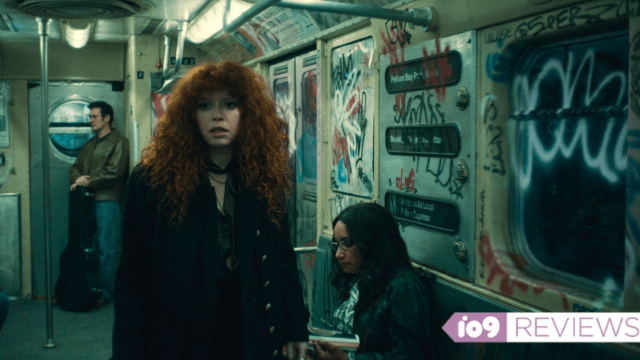Sweet birthday baby! Russian Doll is back, and Nadia Vulvokov (Natasha Lyonne, who also wrote, co-wrote, and/or co-directed several episodes this season) is once again on a time-warped journey that pinballs between being surreal, existentially alarming, funny, frustrating, and deeply moving.
With all seven episodes now streaming on Netflix — all just around 30 minutes each, making for a not-unreasonable single-sitting binge — we’ve already devoured season two, and we suspect many of you have, too. (If you haven’t, note the spoiler warning below; if you haven’t see season one of Russian Doll, note that there’s a brief recap before the start of season two — but even though they tell separate stories, you will want to watch the first season beforehand to fully understand what’s going on.) Overall, we are huge fans of this show; Lyonne is a powerhouse and it’s amazing to see someone with her talent given what feels like free reign over such an original, entertaining series on a platform as huge as Netflix. But we did have a few little nitpicks to temper our feverish praise. Here’s what we liked — and didn’t like so much — about Russian Doll, season two.

We liked… the writing
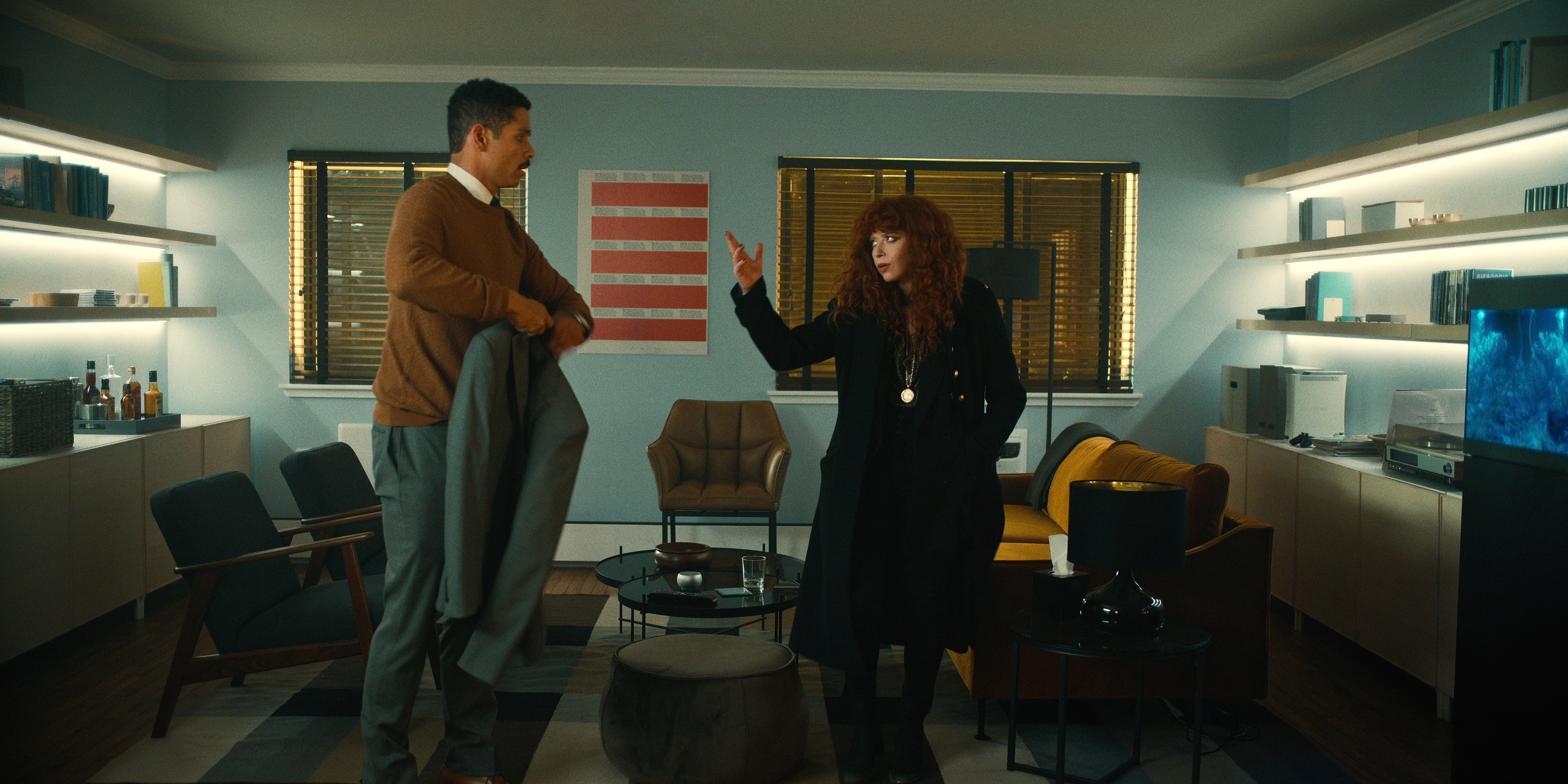
It takes a lot of planning to create a story about time-loops, as season one was structured in such a way that makes satisfying sense; with season two’s shift to time-travel, the attention to detail had to be even more impeccable. Fortunately, not only does Russian Doll’s second season take Nadia and fellow traveller Alan (Charlie Barnett) on wild journeys into the past via New York City’s subway system, introducing multiple timelines to keep track of, it does it in a way that feels seamless and comprehensible for the audience, even when time is crumbling around the characters in the story itself.
It is also very cool to see a story that focuses so squarely on women’s lives. Mostly this means the generations that swirl around Nadia: her mother Nora (Chloë Sevigny), her grandmother Vera (Irén Bordán), her godmother Ruth (at different ages, Elizabeth Ashley and Annie Murphy) — as well as her best friends Maxine (Greta Lee) and Lizzy (Rebecca Henderson). But even Alan’s subplot is mostly centred on his grandmother, Agnes (Carolyn Michelle Smith), since when Nadia and Alan hop on their time-travel trains, they journey to the past to witness events by “becoming” their female family members.
Also, on a more superficial level, Russian Doll is just jam-packed with quips, one-liners, and unexpected pop-culture references. Nadia in particular is a master of zingers, no matter what situation the show tosses her into. Even when her “when the universe fucks with you, you let it” attitude becomes a challenging characteristic (we’ll get to that in a few more slides), she consistently dishes out wry, dry humour, helped along by impeccable delivery and her gruff New York accent.
Liked: the way Russian Doll approaches families (including found families)

Families can lift you up, but they can also deliver crushing disappointments, especially if they don’t live up to your expectations. Season two of Russian Doll really digs into Nadia’s closest relationships, including her particularly fraught connection with Nora. Though Nora’s not alive in 2022, Nadia’s visits to 1982 — during which she literally steps inside her mother’s life — open her eyes as to why her mother, who suffered from mental illness, couldn’t be the caregiver Nadia wished she could be. Amid the chaos, there are also sweet bonding moments, as well as an instance in which Nadia goes to the late 1960s and into her grandmother’s life, and gets to meet her mother as an effervescent young child.
Beyond that, we also get a great sense of the enormous love that draws Nadia’s family together, even when they’re screaming at each other. This includes the gentle influence of Ruth, in both 1982 as a young woman and in 2022 as an elderly woman whose poor health hasn’t hampered her ability to shower Nadia with words of wisdom, including the particularly pertinent observation that “Nothing can absolve us but ourselves.” And when Nadia goes into the past and, as Nora, gives birth to herself (yes, that mindfuck actually happens; yes, it gets complicated), then starts literally carrying her inner child around through time, her family and friends step up unquestioningly to help her take care of the infant.
Liked: the supporting cast
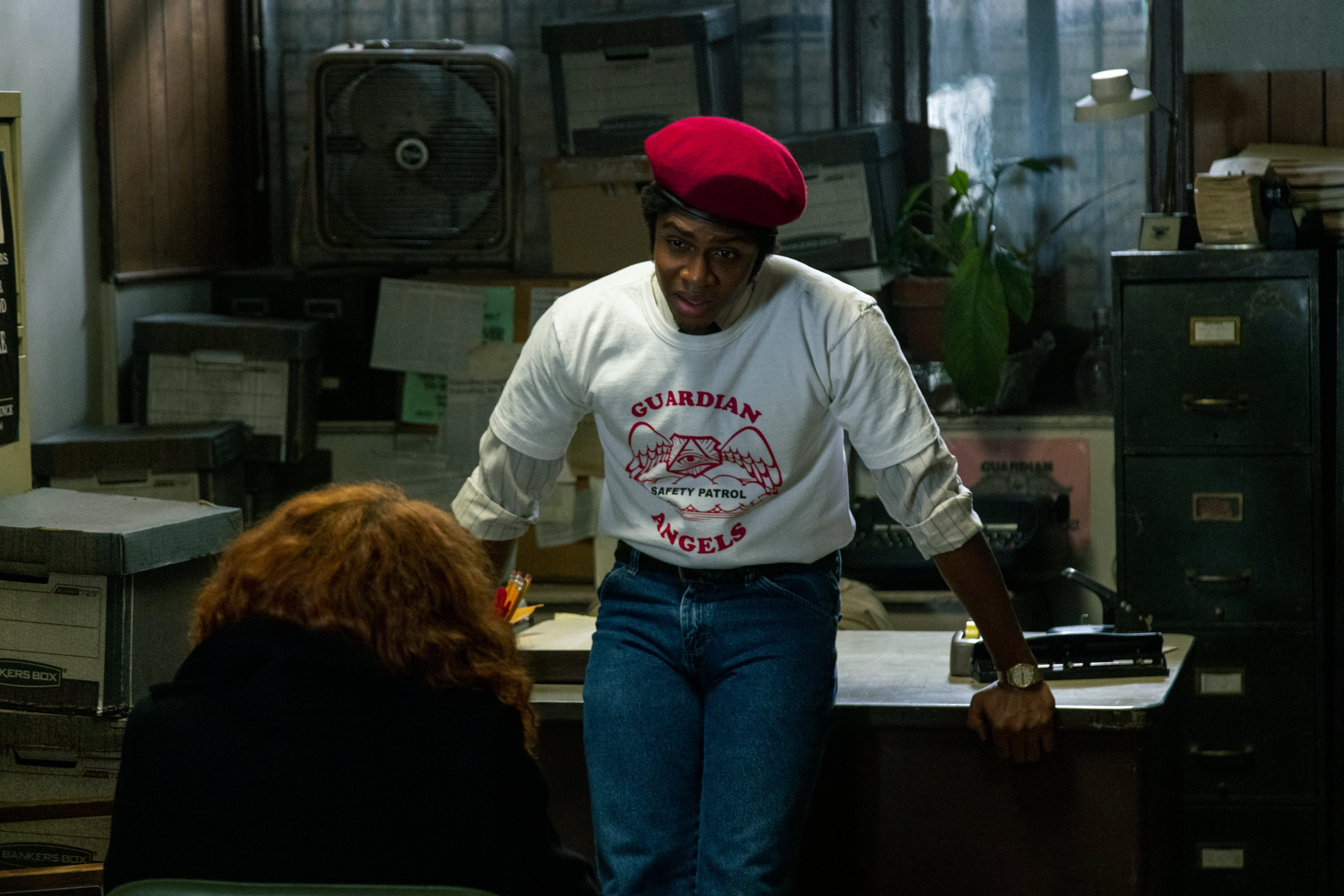
We’ve already shouted most of them out by now, but the actors in Russian Doll season two — which also includes, among others, Sharlto Copley as one of Nora’s sleazy boyfriends, Ephraim Sykes as a circa-1982 NYC Guardian Angel who pops in and out of Nadia-as-Nora’s life, Malachi Nimmons as a helpful electronics-store sales guy, and Athina Papadimitriu as Vera’s longtime friend Delia — are perfectly cast. Russian Doll is very much the Natasha Lyonne show, but the supporting players, even those who just drop by for one or two scenes, help build out and even ground her peculiar existence in important ways.
Liked: Russian Doll’s take on time travel
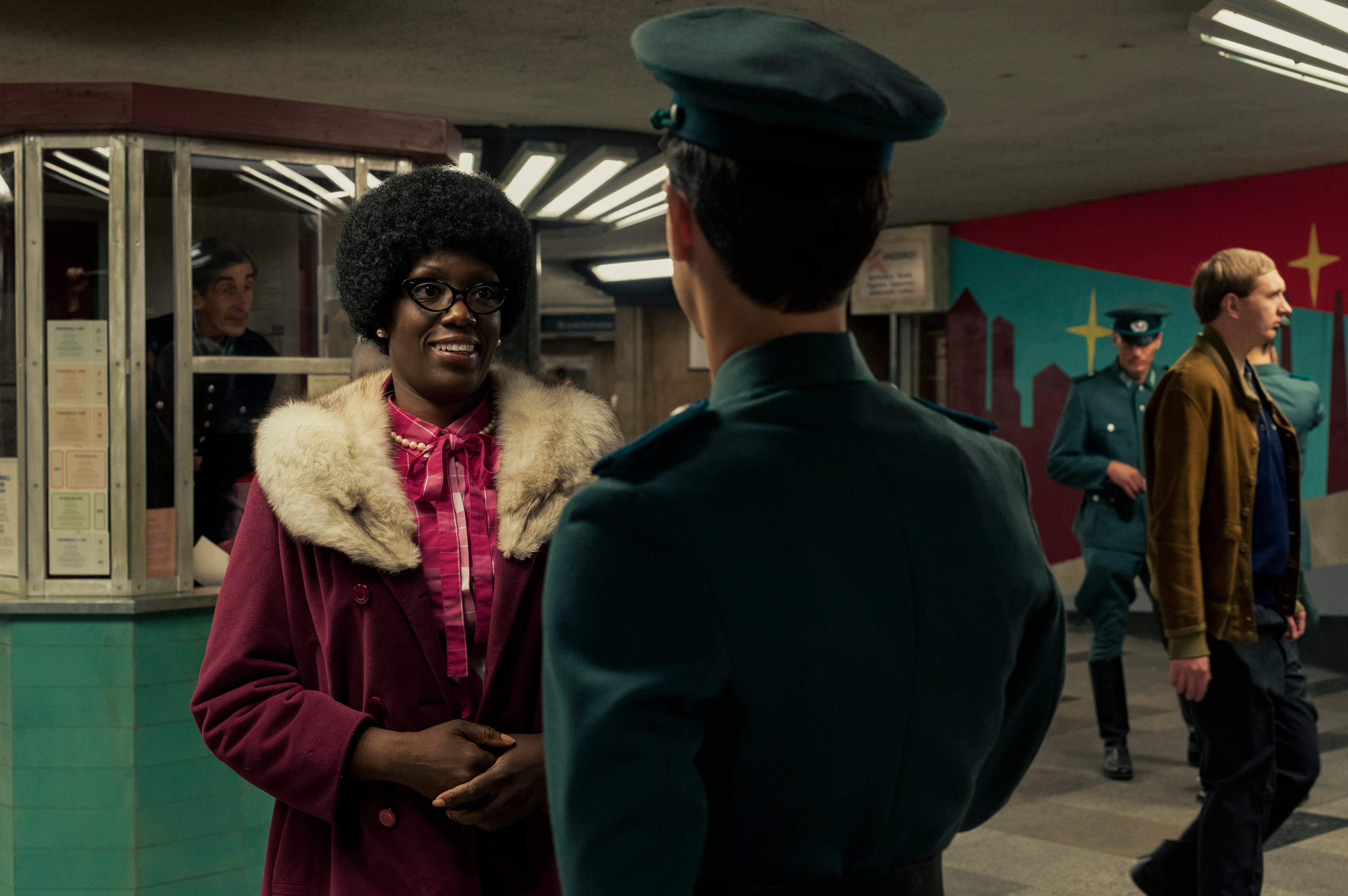
“Literally every movie about time travel says don’t change things!” Alan shrieks at Nadia. It doesn’t take long, however, before he himself starts trying to meddle in the past in the guise of his grandmother — a young woman from Ghana who falls in love with a fellow engineering student who’s plotting to escape from… East Berlin, because it’s 1962. Russian Doll season two knows it’s part of a long line of time-travel stories, much like season one was aware it wasn’t the first time-loop tale ever told. But even with that acknowledgement, it makes some of its own “rules;” paradoxes can happen (see: Nadia co-existing with Baby Nadia), but also, playing too fast and loose with time can eventually cause time itself to start to collapse.
It takes almost the whole season for Nadia to realise that Ruth is right (“nothing can absolve us but ourselves”), but in the meantime she tries to sci-fi a way to fix the problems — financially, emotionally — that have plagued her family for decades. That means we also get cool time-travel stuff like Nadia-as-Vera mailing an actual treasure map from 1944 Hungary to 1962 New York, but we also get Nadia (in 2022) tracking down the descendent of a Hungarian Nazi in Budapest, and realising he’s come to terms with his own complicated family history in a less contorted way.
Also, in a production-design sense, the way Russian Doll delineates between time periods is subtle but also loaded with detail. The contrasts between 2022 and 1982 Manhattan are the most delightful (Nadia has to travel to the 21st century to internet-stalk anyone — but there’s also a scene where she visits the New York public library in 1982 to rifle through the card catalogues), but the depictions of 1944 Hungary and 1962 East Berlin are also effective (plus, scary soldiers in both!) .Additionally, the use of the NYC subway as a time-travel mechanism is inspired; it offers a way for the story to connect to those other time periods (ah, the power of public transit), and it plays into that disorienting feeling that just comes with riding a subway, hurtling along underground through the dark.
Liked: the music
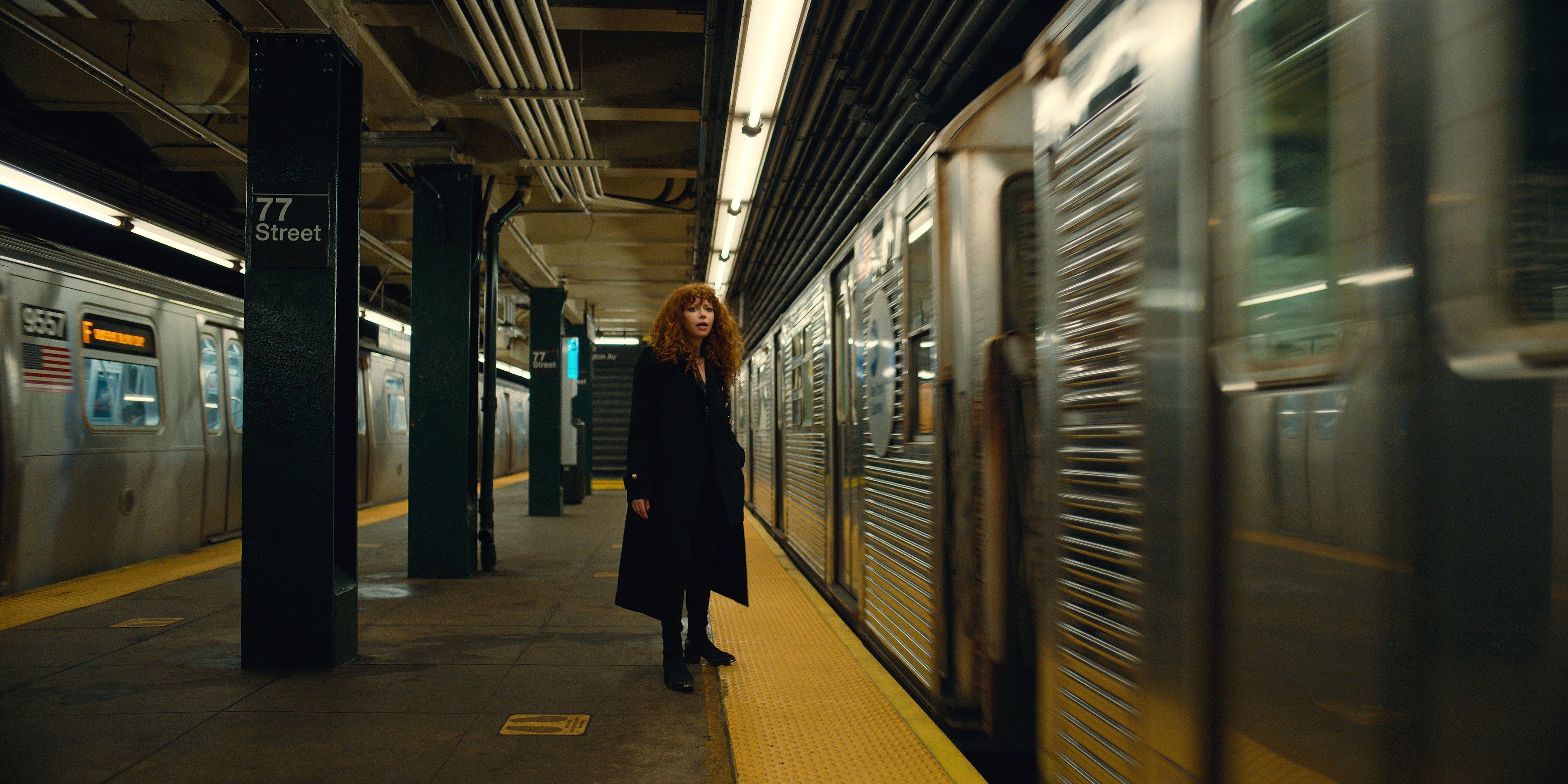
Composer Joe Wong and music supervisor Brienne Rose are the architects of Russian Doll season two’s soundtrack. “Some of the music that we used in season one had this quality of, like, looping,” Rose explained to IndieWire. “Whereas some of the music in season two had this quality of [a] propulsive back-and-forth… based on the [subway] trains and that linear quality.” That goes for both the score and the pop-music songs chosen to accompany the action, like the moment we encounter Nadia striding along to Depeche Mode’s “Personal Jesus.”
Some of it’s a bit on the nose — Danzig’s “Mother” after Nadia realises she’s “become” Nora, for example — some of it’s on the nose but also perfect — Bauhaus’ “Bela Lugosi’s Dead,” reminding us that last season, Nadia died over and over but is still “undead, undead, undead”). And of course, Harry Nilsson’s “Gotta Get Up,” season one’s signature time-loop jam, claims a crucial moment in a warped new context.
Liked: the fact that there’s a season 2 at all
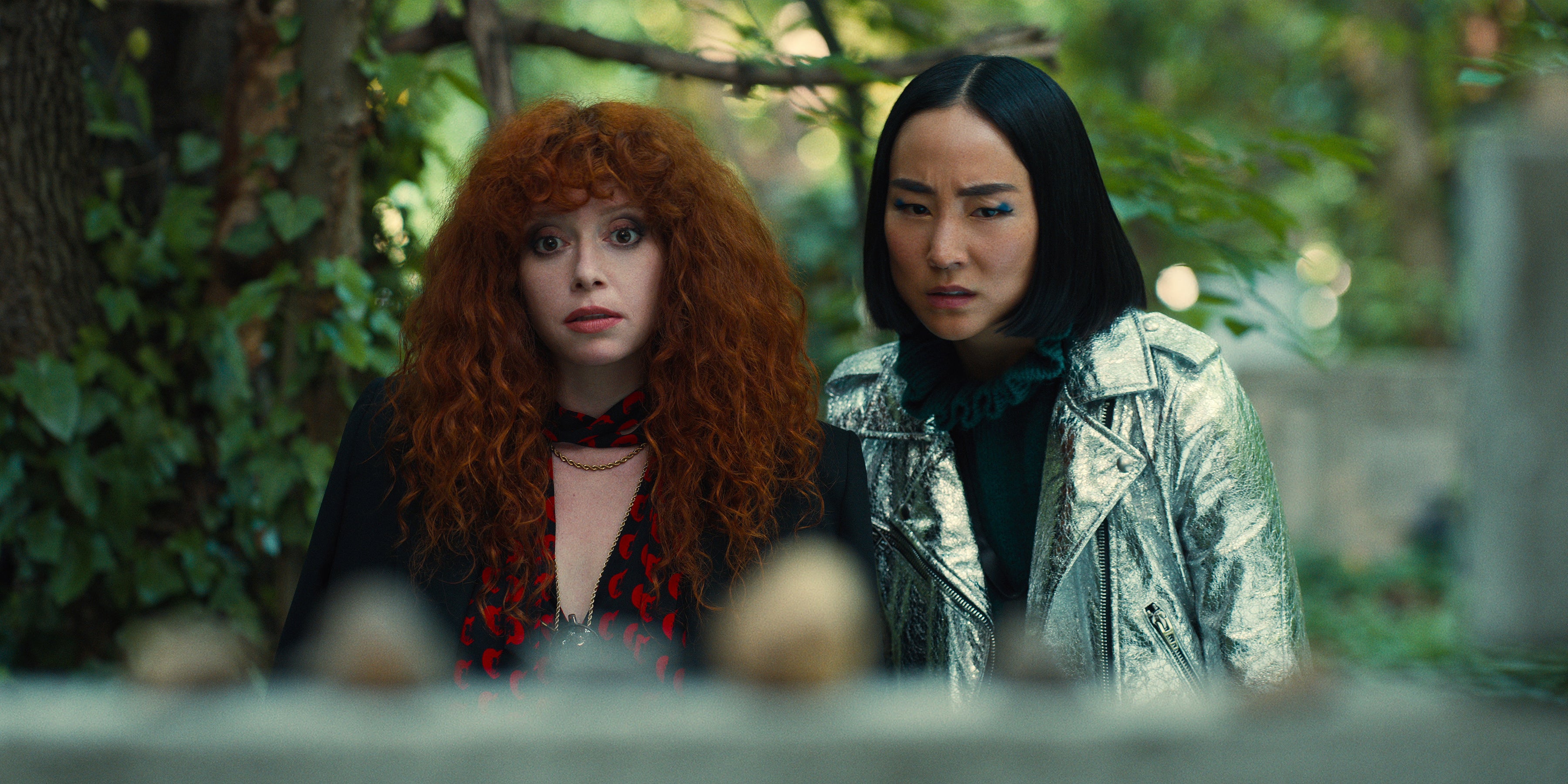
Season one was a near-perfect arc of television, with a well-executed and fresh-feeling take on a familiar time-loop concept. Even with some necessary narrative repetition, it was full of surprises, as the audience chased after Nadia on her live, die, repeat cycle of trying to riddle out the mystery of her life. And then, meeting Alan — and realising “wait, he’s dying all the time, too?” The story wrapped up with an ending that didn’t answer every question, not that it needed to, but more importantly gave us hope for these two wounded, time-challenged people. It felt contained within itself.
The fact that Netflix wanted more Russian Doll — and that Lyonne and company hit upon a new way to pick up Nadia’s story, a few days before her 40th birthday (and four years since her endless 36th birthday) — was unexpected, even with all the critical acclaim season one racked up. We’re glad for a chance to step back into this world.
Didn’t like: Nadia can be… challenging to root for
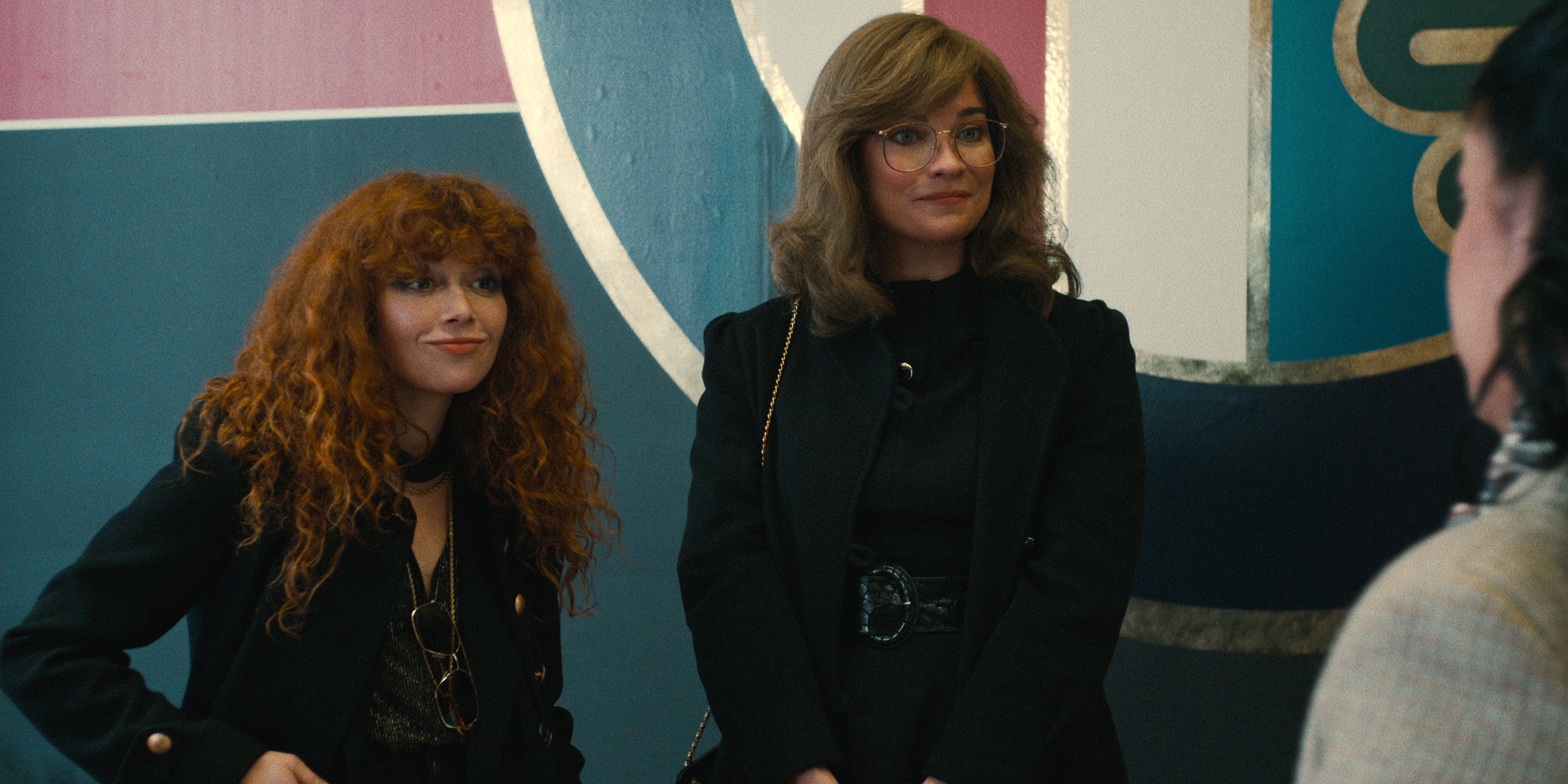
Nadia is a true one-of-a-kind, and if she was a perfect person who made all the right choices, she wouldn’t be singled out by the universe for all these time-displacement adventures. She also wouldn’t be that particularly an interesting character in the first place, because no one wants a perfect protagonist.
But in Russian Doll season two there are certain moments that feel more plot-driven than character-driven, like when she loses a very important bag on one of her subway trips (either to a thief or the whims of space-time, it’s not entirely clear), as well as some bad judgment calls. Yes, her many deaths and rebirths have given her a sense of invincibility, but it’s never a good idea to call attention to yourself or the person who’s selflessly helping you in a train station packed with Nazis, or to insist you can see your (dead) mother to a doctor who’s already put you in a straight jacket. She has some clear goals, but they’ve made her focus very narrow-minded. Like, only on herself. At one point, Alan — who doesn’t have Nadia’s confidence, but has way more self-awareness — calls her out for being selfish, and you can’t help but strenuously agree.
Didn’t like: MacGuffin overload
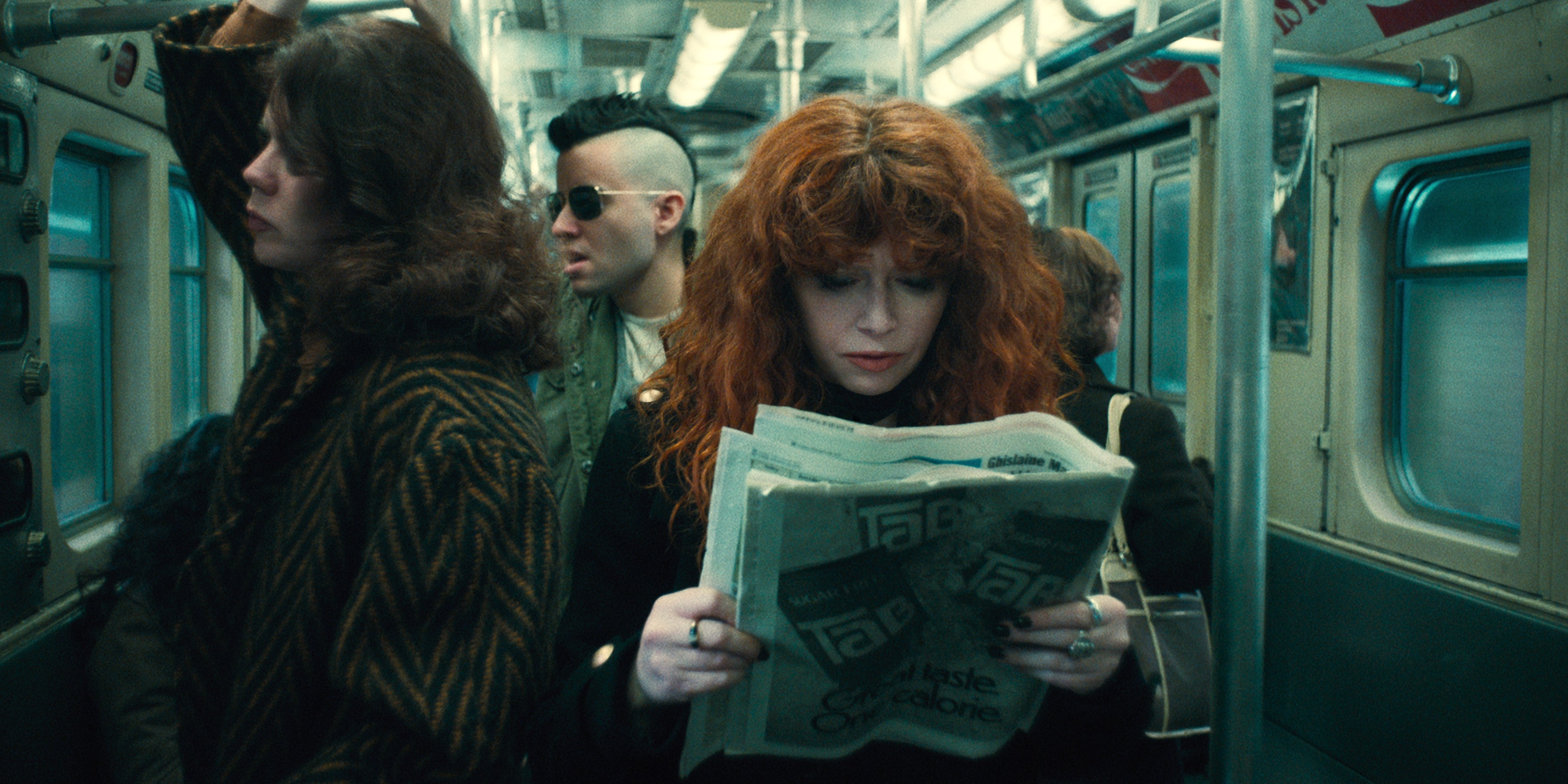
OK, this is nitpicky but don’t say we didn’t warn you: that gold coin plot literally went nowhere. Which was undoubtedly the point, and the coins were just a metaphor anyway. But damn, Russian Doll sure spent a hell of a lot of time tracking them down, didn’t it?
Russian Doll seasons one and two are now streaming on Netflix.
